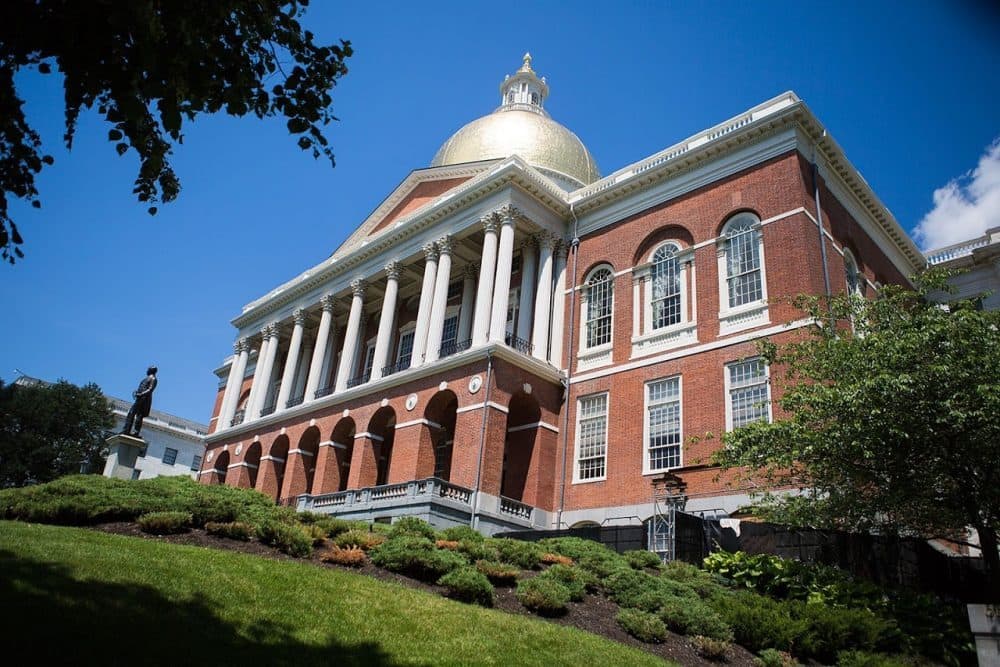Advertisement
Legislative Deadline Looming, Deal Reached On Municipal Government Modernization

Massachusetts House and Senate leaders held out hope that final agreements could be reached on several major bills, even as the clock ticked closer toward a deadline for legislative action.
By rule, formal sessions of the Legislature must end for the year by midnight Sunday.
Closed-door negotiations dragged out Saturday on several measures that had been named as priorities by both the Democratic-controlled Legislature and Republican Gov. Charlie Baker, including proposals to reshape the state's energy future and place regulations on popular ride-hailing companies, such as Uber and Lyft.
"They are going back and forth with proposals," House Speaker Robert DeLeo said of House-Senate conference committees that were considering those and other key bills. "So when I hear that I am hopeful that eventually it will get done."
But DeLeo, speaking to reporters after a Democratic caucus, added: "Can I promise a yes or no? I can't do that."
An agreement was reached late Saturday on a wide-ranging measure that seeks to help local governments streamline operations and better manage their own affairs.
The so-called municipal modernization bill, slated for a final vote Sunday by both chambers, did not include a provision sought by city and town leaders that would give communities more flexibility in issuing liquor licenses.
Lawmakers were forced to work over the weekend because most activity on Beacon Hill ground to a halt the past two weeks, while many attended their respective national party conventions in Cleveland and Philadelphia. Routine, uncontested bills could still be passed through December, but all other proposals would have to return to the starting line when the next two-year session opens in January.
The energy bill seeks to reduce the state's reliance on carbon-emitting fossil fuels by requiring utilities to solicit long-term contracts with suppliers of cleaner energy sources, notably offshore wind power and hydroelectricity. But significant disagreements remained to be ironed out, including specific renewable energy targets and whether to prohibit utilities from passing on to ratepayers the cost of building new pipelines that carry natural gas into the region.
Advertisement
The Senate on Saturday approved a bill that would create a system of paid family and medical leave for all workers in the state.
Under the measure, which would be phased-in over three years, employers would be required to provide up to 16 weeks of paid leave for family care, such as the birth of a child, and up to 26 weeks of paid disability leave. Employers and employees would contribute equally into a trust fund that would administer and pay the benefits.
"No one should have to choose between a paycheck and their own health or the well-being of their families," said Democratic Sen. Karen Spilka of Ashland. "Paid leave is a common sense benefit that workers in nearly every other country in the world receive."
It appeared unlikely, however, that the bill would be considered by the House before the Sunday deadline. Scores of other bills that received public hearings, advanced through committees and in many cases received favorable votes in at least one chamber were also likely to die when the clock strikes zero.
The House focused attention on budgetary matters, voting to restore funding for several agencies and programs in the state's $39 billion spending plan by overriding dozens of Baker's line-item vetoes.
DeLeo ruled out any action by lawmakers on a dispute over whether Democratic Attorney General Maura Healey overstepped her powers when she recently ordered a ban on so-called copycat assault weapons in the state, as many gun rights advocates assert.
While lawmakers have asked Healey to explain under what authority she was acting, DeLeo said he expected the matter ultimately to be decided in court.